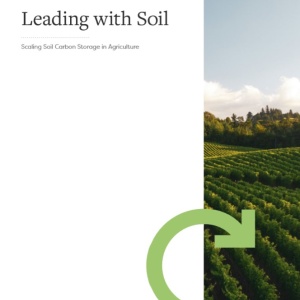
This report from US climate NGO Carbon180 examines barriers that farmers in the United States face when moving towards agricultural practices that build soil health and sequester carbon. It finds that they include insufficient technical assistance, scientific knowledge gaps, and a lack of strong and reliable incentives.
The report makes the following recommendations:
- Education
- Fund demonstration projects
- Bolster the technical capacity of local National Resources Conservation Service offices
- Increase support for peer networks
- Science
- Develop cost-effective and accessible soil carbon assessment methodology
- Solidify soil health metrics across the US
- Fund research and demonstration projects across agricultural contexts and geographies
- Pave the way for better policy design through economic research
- Build a national carbon observatory
- Incentives
- Subsidise infrastructure to scale soil carbon storage
- Expand programmes to non-owner operators
- Adjust existing incentives to account for the speed of soil carbon accrual in agricultural soils
- Adapt the Federal Crop Insurance Programme to address climate impacts
- Simplify access to incentives
- Improve financing mechanisms and fully fund soil health programmes
- Create new, more durable market incentives
Read the full report, Leading with soil: Scaling soil carbon storage in agriculture, here (PDF link). See also the Foodsource chapter Focus: the difficult livestock issue and the FCRN report Grazed and Confused?







Post a new comment »